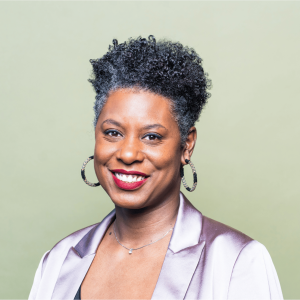Liberation, Healing and Justice by Way of Love
By PEP CEO, Habeebah Rasheed Grimes
“As a nation, we need to gather our collective courage and face that our society’s lovelessness is a wound.As we allow ourselves to acknowledge the pain of this wound…we come face to face with the possibility of conversion, of having a change of heart.”
bell hooks

Honoring Black History Month at a time when its importance is being questioned in some spaces has brought on difficult emotions. I am saddened and disturbed that there would be such a debate. But I am grateful that at PEP we persist in amplifying the history of a people who have sacrificed so much and contributed so greatly to our society.
This year, as we celebrate Black History Month, we also celebrate love as inspired by Valentine’s Day. In doing so, I want to elevate the work of bell hooks, a beloved scholar of feminist theory whose analyses of our nation’s history and more specifically, the experiences of Black women as part of that history, led her to offer us a path to liberation, healing, and justice by way of love.
I find it powerful and moving that a scholar who had so deeply studied the ways racialized trauma and violence impacted Black women throughout history came to the conclusion that we as a nation have an urgent need for love. Being immersed in such painful information, coupled with her own childhood experiences with “love’s absence,” could have surely led to a different assertion. Yet for much of her life, she used herself and her work to prioritize teaching about love.
Perhaps hooks’ most popular writing on the subject, All About Love: New Visions, conveys how her childhood experiences and scholarly research helped inform her perspective, shaping her belief that love was our only way forward as individuals, partners, families, and as a society.
Importantly, hooks’ thoughts on love are far more expansive than our modern-day conceptualization. While we tend to fixate on romantic love when the word is invoked, she invites us to examine not only our love for our intimate partners, but for ourselves, our children, and all of humanity. She also compels us to consider how we might more intentionally and radically (i.e., unconditionally) love one another.
hooks’ writing resonates with our work at PEP, where we strive to help kids and families feel a sense of connection so that they might be able to show and experience love more fully, typically after they have endured a great deal of relational pain. We also champion unconditional positive regard because we believe every young person deserves empathy and compassion.
Here are some key concepts that we can adopt to live out an ethic of love in our personal and professional lives:
- Acknowledge how our childhood experiences with love, or its absence, have shaped us and others. Seek healing and help others heal where there has been harm.
- Violence has no place in a loving relationship. If we believe violence is necessary in our relationships to get what we need or want from another person, including children, we are not in loving relationships.
- Recognize the difference between care and love as many people confuse the two. Realize that providing care alone (e.g. resources, support, and assistance) will never be as impactful as demonstrating love for others.
- Loving communication is direct but it is also mindful of the impact on the person receiving it.
- Love requires action and when we act from a place of love for all, our impact reverberates across generations.
I hope we all consider how bell hooks’ guidance on love might serve us, our families, our institutions, our communities, and the broader society in these volatile and divisive times. How might we show up as agents of love in action in all that we do? How might we change the world our children will inherit by doing so?
